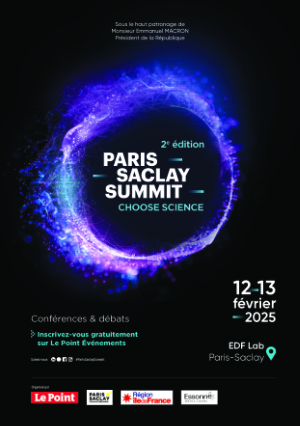Electropolymerized, Aptamer Functionalized Organic ElectroChemical Transistors (OECT) for Neuromodulators Detection
| ABG-127361 | Sujet de Thèse | |
| 03/12/2024 | Autre financement public |
- Physique
- Chimie
- Sciences de l’ingénieur
Description du sujet
Approximately 180 million people suffer from brain disorders in Europe, with neurodegenerative diseases expected to increase due to an aging population. Understanding brain function is crucial for prevention, early diagnosis, and treatment. To tackle the complexities of the brain, innovative technologies are needed beyond traditional methods. Brain communication relies on electrical activity and interactions between neuromodulators like dopamine, serotonin, and acetylcholine. However, monitoring neuromodulators in biological tissue is challenging, limiting real-time measurements to a few neuromodulators studied individually. To enhance our understanding of brain function and related disease (i.e. Parkinson’s disease), there is an urgent need for multiplexed biosensors that can measure multiple neuromodulators simultaneously with adequate temporal and spatial resolution.
The main objective of the PhD project is to address this unsolved challenge by pioneering biosensing devices capable of detecting multiple neuromodulators simultaneously in vivo. To do so, we aim to develop micro-structured organic electrochemical transistors (μOECT) with functionalized surfaces to click different aptamers (oligomers that bind a specific target molecule) for multiple neuromodulators detection. The conception of these organic electrochemical transistors will be carried out by means of electro-polymerization of the organic mixed ionic electronic conductor channel material.
Beyond the technology development, the PhD candidate will explore exciting fundamental questions to understand mechanisms, which is critical to developing robust, reproducible biosensors
- Which surface chemistry is optimal for integrating structureswitching aptamers into OECTs to sufficiently alter the ionic charge distribution upon target recognition to measure neuromodulator-specific changes?
- What are the optimal electropolymerization conditions to enable microscale resolution multiplexing of different aptamers on the surface of OECTs?
- How does altering the dimensions/configurations of the OECT device lead to tuning of sensing parameters such as sensitivity, response time, and detection limit?
The microfabrication and electrochemical characterizations of microstructured OECT-chips will be carried-out at IMS (Laboratory for the Integration from Material to Systems) using the ELORGA and ELORPrintTec platform facilities. Biology and electrophysiology measurement will be performed in close collaboration with our partners at CheminaLab (EPFL) and NutriNeuro (University of Bordeaux) laboratories
Prise de fonction :
Nature du financement
Précisions sur le financement
Présentation établissement et labo d'accueil
https://oembordeaux.cnrs.fr/
Intitulé du doctorat
Pays d'obtention du doctorat
Profil du candidat
The background of the candidate should include either materials science, physical chemistry, microelectronics engineering or bio-electronics. The candidate should have a strong interest in interdisciplinary research and is willing to fully immerse him/herself in the different disciplines, to gain a real/effective multidisciplinary expertise and to become autonomous in the different fields of the project. Good experimental skills are also required. Intensive training in necessary fields will be offered.
Vous avez déjà un compte ?
Nouvel utilisateur ?
Vous souhaitez recevoir nos infolettres ?
Découvrez nos adhérents
 MabDesign
MabDesign  Ifremer
Ifremer  Aérocentre, Pôle d'excellence régional
Aérocentre, Pôle d'excellence régional  CESI
CESI  ADEME
ADEME  Nokia Bell Labs France
Nokia Bell Labs France  ONERA - The French Aerospace Lab
ONERA - The French Aerospace Lab  TotalEnergies
TotalEnergies  Généthon
Généthon  Tecknowmetrix
Tecknowmetrix  CASDEN
CASDEN  Laboratoire National de Métrologie et d'Essais - LNE
Laboratoire National de Métrologie et d'Essais - LNE  Groupe AFNOR - Association française de normalisation
Groupe AFNOR - Association française de normalisation  Institut Sup'biotech de Paris
Institut Sup'biotech de Paris  ANRT
ANRT  PhDOOC
PhDOOC  SUEZ
SUEZ  Institut de Radioprotection et de Sureté Nucléaire - IRSN - Siège
Institut de Radioprotection et de Sureté Nucléaire - IRSN - Siège  MabDesign
MabDesign



